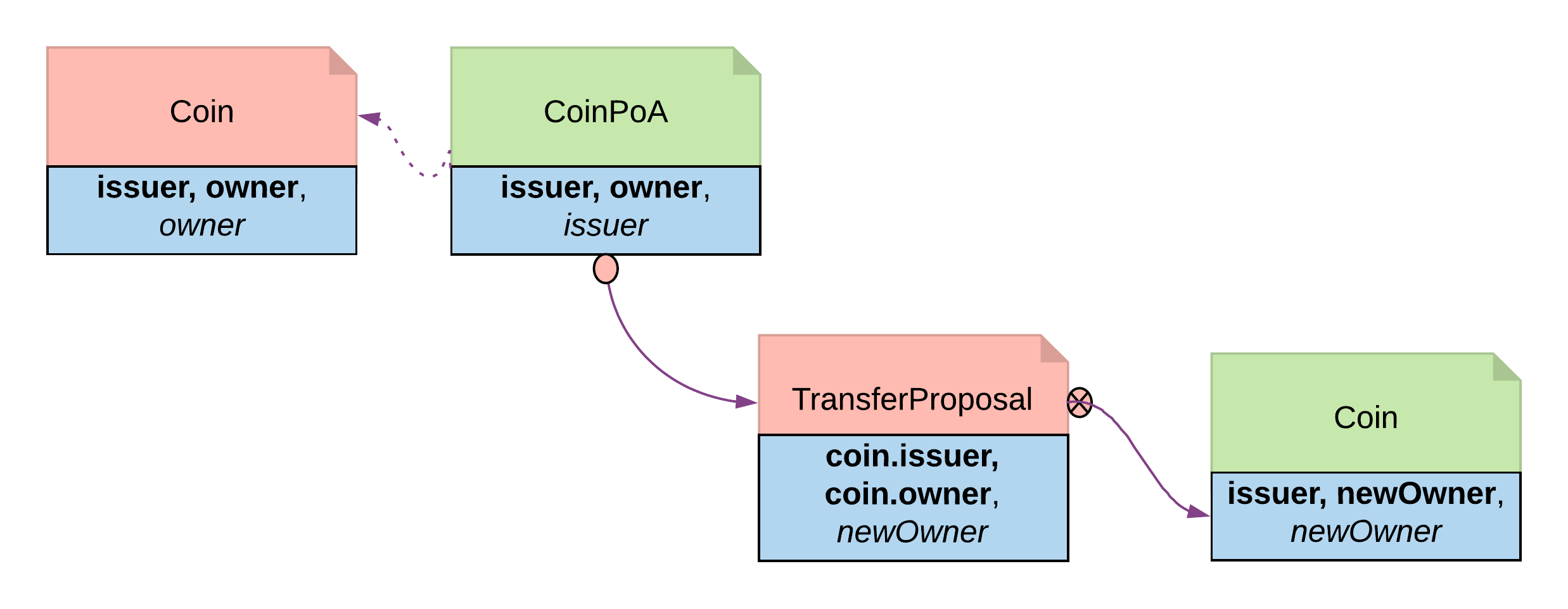The Delegation Pattern¶
The Delegation pattern gives one party the right to exercise a choice on behalf of another party. The agent can control a contract on the ledger without the principal explicitly committing the action.
Motivation¶
Delegation is prevalent in the business world. In fact, the entire custodian business is based on delegation. When a company chooses a custodian bank, it is effectively giving the bank the rights to hold their securities and settle transactions on their behalf. The securities are not legally possessed by the custodian banks, but the banks should have full rights to perform actions in the client’s name, such as making payments or changing investments.
The Delegation pattern enables Daml modelers to model the real-world business contractual agreements between custodian banks and their customers. Ownership and administration rights can be segregated easily and clearly.
Implementation¶
Pre-condition: There exists a contract, on which controller Party A has a choice and intends to delegate execution of the choice to Party B. In this example, the owner of a Coin contract intends to delegate the Transfer choice.
template Coin
with
owner: Party
issuer: Party
amount: Decimal
delegates : [Party]
where
signatory issuer, owner
observer delegates
--a coin can only be archived by the issuer under the condition that the issuer is the owner of the coin. This ensures the issuer cannot archive coins at will.
choice Archives
: ()
controller issuer
do assert (issuer == owner)
- Delegation Contract
- Principal, the original coin owner, is the signatory of delegation contract CoinPoA. This signatory is required to authorize the Transfer choice on coin.
template CoinPoA with attorney: Party principal: Party where signatory principal observer attorney choice WithdrawPoA : () controller principal do return ()
- Whether or not the Attorney party should be a signatory of CoinPoA is subject to the business agreements between Principal and Attorney. For simplicity, in this example, Attorney is not a signatory.
- Attorney is the controller of the Delegation choice on the contract. Within the choice, Principal exercises the choice Transfer on the Coin contract.
nonconsuming choice TransferCoin : ContractId TransferProposal with coinId: ContractId Coin newOwner: Party controller attorney do exercise coinId Transfer with newOwner
- Coin contracts need to be disclosed to Attorney before they can be used in an exercise of Transfer. This can be done by adding Attorney to Coin as an Observer. This can be done dynamically, for any specific Coin, by making the observers a List, and adding a choice to add a party to that List:
choice Disclose : ContractId Coin with p : Party controller owner do create this with delegates = p :: delegates
Note
The technique is likely to change in the future. Daml is actively researching future language features for contract disclosure.

Delegation pattern diagram¶

